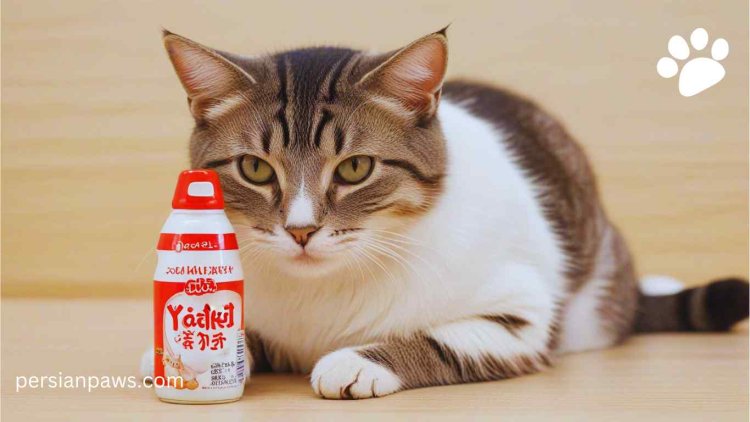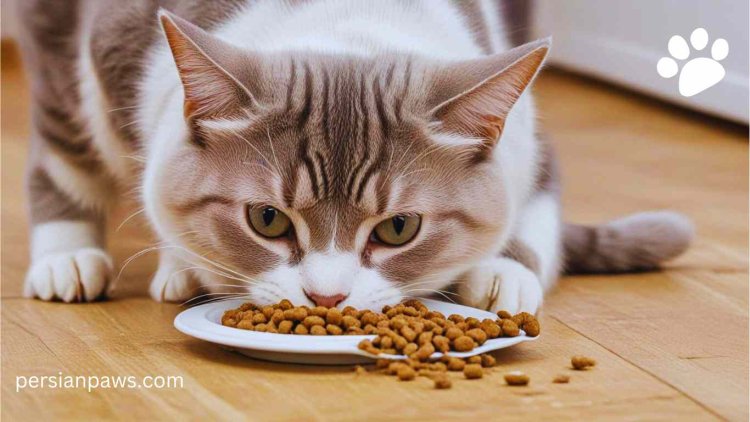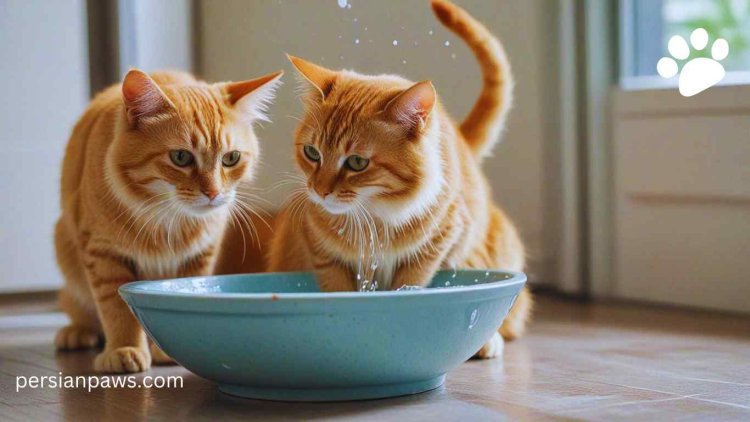Is Yakult Good for Cats - A Comprehensive Guide
No, Yakult is not good for cats. Cats have different nutritional needs and digestive systems than humans. Stick to cat-specific foods and treats recommended by veterinarians.

Table of Contents
Yakult, the popular probiotic drink, has been recommended for its benefits to human good health. But as more pet owners become interested in the health of their feline companions, a question emerges, is Yakult good for cats? This comprehensive guide will explore the potential benefits and risks of feeding Yakult to cats, informed by veterinary expertise and evidence-based practices.
Key Takeaways
● Yakult is formulated for human consumption and may NOT be suitable for cats due to lactose and sugar content.
● Probiotics can benefit cat gut health, but it is crucial to use feline-specific products.
● Consulting with a veterinarian is essential before making any dietary changes for your cat.
Digestive System of Cats and the Importance of Good Health
Cats Digestive System
Cats have a unique and relatively short digestive tract compared to humans. Their stomachs are highly acidic, designed to digest animal proteins and fats efficiently. Gut health is crucial for cats, influencing their overall well-being, immunity, and even mood.
Importance of Gut Health in Cats
Just like in humans, a healthy gut microbiome in cats can:
● Aid in digestion and nutrient absorption
● Strengthen the immune system
● Prevent Digestive system issues such as diarrhea and constipation
Probiotics are often considered beneficial for maintaining and improving gut health.
However, what works for humans may not be suitable for our feline friends.
Yakult: Analysis and Ingredients
What is Yakult?
Yakult is a fermented milk drink containing the probiotic bacteria Lactobacillus Casei Shirota. It's marketed to improve digestion and boost the immune system in humans.
Ingredients in Yakult
● Water
● Skimmed Milk Powder
● Glucose-Fructose Syrup
● Sucrose
● Lactobacillus Casei Shirota
Potential Impact on Cats
● Lactose: Many adult cats are lactose intolerant. The presence of skimmed milk powder in Yakult can cause digestive upset, including diarrhea and vomiting.
● Sugars: Yakult contains glucose-fructose syrup and sucrose. Cats do not have a high dietary requirement for sugars, and excessive sugar intake can lead to obesity and dental issues.
● Probiotics: While Lactobacillus casei Shirota is beneficial for human gut health, it is not specifically formulated for cats. The feline gut flora differs from humans, and introducing human probiotics can potentially disrupt their natural balance.
Insights from Veterinary and Nutrition Experts
To provide a well-rounded view, let's hear from the experts.
Professional Opinions
Dr. Emily Johnson, DVM:
"Feeding human probiotics like Yakult to cats is not advisable. Felines have different nutritional requirements, and their gut flora is distinct from humans. It's essential to use probiotics specifically formulated for cats." Pet
Nutrition Specialist, Sarah Green:
"I've seen cases where well-meaning pet owners introduce human products to their pets, only for it to cause harm. Always consult with a veterinarian before adding any human food or supplement to your pet's diet."
Evidence-Based Practices
From the American Veterinary Medical Association (AVMA) and the Journal of Feline Medicine and Surgery, the agreement is clear, probiotics should be tailored to the species. Using feline-specific probiotics ensures compatibility with their digestive systems and maximizes health benefits.
Case Studies and Personal Experiences
Case Study 1 - Rosie
A 7-year-old domestic shorthair, Rosie, presented with sporadic diarrhea. Her owner had been giving her small amounts of Yakult daily. After stopping Yakult, Rosie's symptoms resolved within two weeks. This case illustrates the potential negative impact of human probiotics on cats.
Case Study 2 - Simba
Simba, a 4-year-old Siamese cat, experienced chronic vomiting and weight loss. His owner had added Yakult to his diet, unaware that Simba was lactose intolerant. Removing Yakult and providing appropriate veterinary treatment improved Simba's health significantly.
These real-life examples highlight the importance of consulting with a veterinarian before introducing any new food or supplement to your cat's diet.
Alternatives to Yakult for Promoting Gut Health in Cats
Recommended Probiotics for Cats
● FortiFlora by Purina:
Contains Enterococcus faecium, a probiotic strain beneficial for cats. It helps manage diarrhea and supports a healthy immune system.
● Provable DC by Nutramax:
A multi-strain probiotic supplement that includes prebiotics to support digestive health in cats.
● VetOne Advita:
It contains four different strains of live bacteria and prebiotics to promote gut flora balance.
Dietary Strategies
● High-Quality Cat Food:

Choose premium cat food brands that include prebiotics and probiotics formulated specifically for felines. Look for options that list real meat as the first ingredient and avoid fillers like corn and soy, which can be harder for cats to digest.
●Supplementation:
Consult with your veterinarian about introducing probiotic supplements tailored for cats. These supplements can help maintain a healthy balance of gut bacteria, which is essential for proper digestion and overall well-being. Your vet can recommend the best type and dosage based on your cat's needs.
● Hydration:

Ensure your cat stays hydrated, as water is crucial for digestive health. Make fresh water available at all times and consider providing a water fountain to encourage them to drink more. Wet cat food can also help increase their water intake compared to dry dog food.
How to Introduce Supplements Safely
● Gradual Introduction:
Start with a small amount of the new supplement and gradually increase to the recommended dosage over a week or two. This slow introduction helps your cat's digestive system adjust without causing any discomfort or digestive upset.
●Monitor Your Cat:
Keep an eye on any changes in your cat's behavior, appetite, or stool. Look for signs such as diarrhea, vomiting, or lethargy. Consult your vet immediately if you notice any adverse effects to ensure your cat's well-being.
●Veterinary Guidance:
Always seek professional advice before adding any new supplement to your cat's diet. Your vet can provide personalized recommendations based on your cat's health history, age, and specific dietary needs, ensuring the supplement is safe and beneficial for your feline friend.
Conclusion
Final Verdict
Is Yakult good for cats? Based on available evidence and expert opinions, it is NOT recommended to feed Yakult to cats. There are safer and more effective alternatives tailored to feline gut health.
Recommendations
For pet owners looking to improve their cat's digestive health, opt for probiotics and supplements specifically designed for cats. Always consult with a veterinarian to ensure the best care for your feline companion.
What's Your Reaction?















